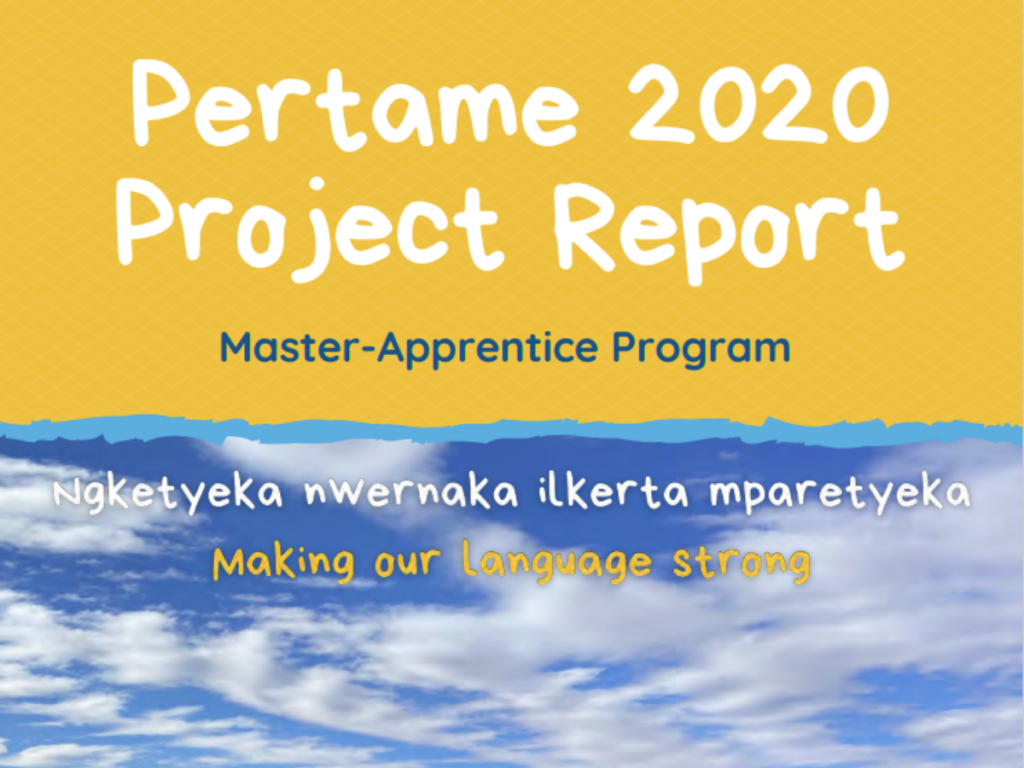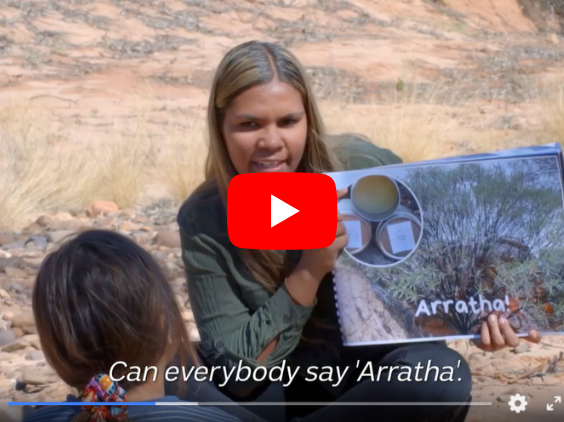Foundation for Rural & Regional Renewal (FRRR)
FRRR and VFFF today announced their partnership to expand the reach and impact of the Backing the Future program, which VFFF launched in 2022.
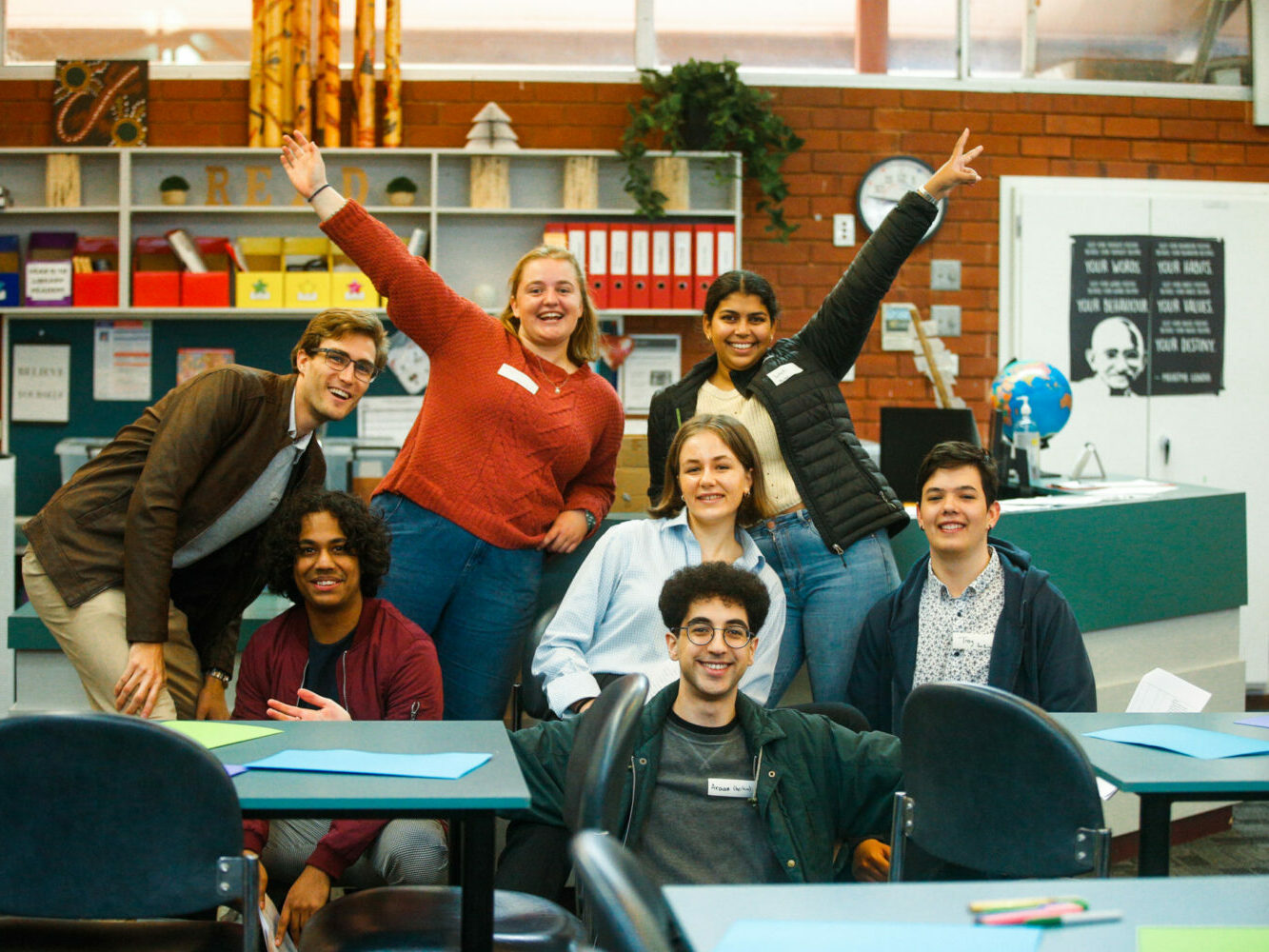
Backing the Future supports individuals and groups of individuals working to enhance the lives of people aged 12-30 who live in remote, rural and regional NSW and QLD. It offers grants of $50,000 over 12 months to support projects that align to one or more of four focus areas.
The grants are designed as seed funding for new ideas that support young people in their community. The funds can be used to assist in researching, piloting or accelerating early-stage ideas and can be used for a range of purposes such as paying a salary, purchasing technology or covering rent for office space, as long as it supports the approved initiative.
FRRR and VFFF have a history of collaborating for greater impact in remote, rural and regional communities, and are joining forces again to ensure that more young people benefit from the Backing the Future program.
VFFF CEO, Jenny Wheatley, said that by working together, the organisations know that they can enable more great ideas to come to fruition.
“VFFF established Backing the Future to provide focussed support for youth. In our first three rounds, we’ve seen some passionate people make wonderful progress on issues that matter to them and their community and which enhance the lives of young people. By partnering with FRRR, we want to extend our support into more remote, rural and regional communities.
“By working together and leveraging FRRR’s network, we hope to see more applications from more individuals who can make a difference in the lives of young people. In addition, with a larger team than VFFF, FRRR will be able to provide more support to those leading these projects, building their capacity and strengthening community for the future,” Ms Wheatley explained.
FRRR CEO, Natalie Egleton, said that the timing is great, as FRRR has recently committed to doing more to support the next generation of remote, rural and regional leaders.
“Young people want to make a difference to their communities and to the success of regional Australia, but they don’t always want to do it in the traditional ways.
“Great ideas are often hindered by funding that requires a proof of concept. In contrast, this program emphasises great ideas and the enthusiasm and energy of the individual pitching the concept. It allows them to take on leadership roles and can be a catalyst to real change.
“It’s not just open to young people though – anyone who has an idea that will benefit young people in remote, rural and regional communities can apply,” Ms Egleton explained.
A great example of how FRRR and VFFF are already having an impact on young people together, is through Backing the Future grant recipient, Jameson Harvey, founder of Red Dirt Robotics.
Red Dirt Robotics had received funding through the FRRR ABC Heywire Youth Innovation Grants to deliver two STEM workshops in remote schools. After seeing the impact of that program, Jameson used his Backing the Future grant to undertake a three-month intensive tour across rural and remote QLD teaching robotics and coding to young people.
The next round of the Backing the Future program will be for projects that benefit young people in NSW, with the grant round opening 26 July. The 2024 QLD round is currently being assessed, with the 2025 QLD round opening early next year.
A webinar will be held on 7 August, where VFFF and FRRR will share more about the program, including some case studies of the impact of past grants. Register for the webinar at: https://events.humanitix.com/backing-the-future-webinar.
In the meantime, to learn more, head to frrr.org.au/backing-the-future-by-vfff-and-frrr/ or call 1800 170 020 and speak to FRRR’s Youth Futures Manager, Lauren.
More than 30 school-aged students will ‘takeover’ Lismore from 20 May to 24 May to share their stories as part of the ABC’s Takeover Youth Summit.
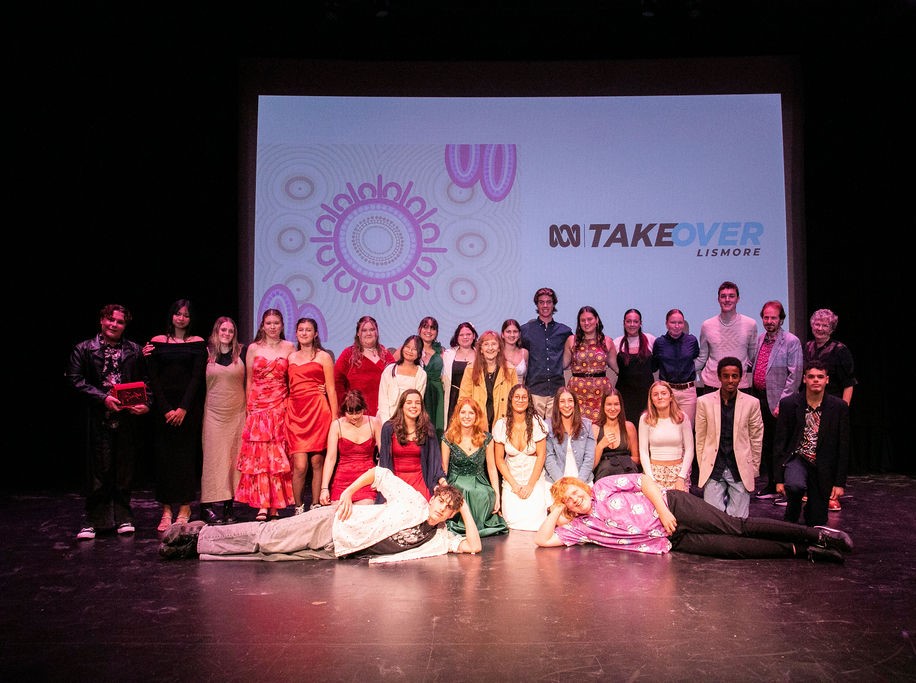
The Summit is a partnership between the ABC, the Office for Youth; Department of Employment and Workplace Relations and FRRR.
Thirty-four students have been selected to have their stories and ideas featured on the ABC during the Summit and beyond. The winning stories showcase the diversity and bravery of young people in the region.
To further back these ideas, FRRR will be offering support to community organisations to adopt and adapt the ideas developed by Summit participants.
Natalie Egleton, FRRR CEO, said, “FRRR is inspired to be part of their journey and to invest in the local community so young people can have a powerful say in the future of their region.”
Takeover Lismore winners will be featured across the ABC during the week of 20 May 2024.
To read the full media release and find out more information about the program please visit: abc.net.au/takeover-lismore.
Grants available to fund youth-focused community projects
FRRR is encouraging not-for-profit organisations (NFPs) in rural communities to work with local young people to adopt or adapt one of the six project ideas developed at this year’s ABC Heywire Youth Summit. The ideas emerged in response to the concerns identified as being most current and critical for youth in remote, rural and regional Australia.
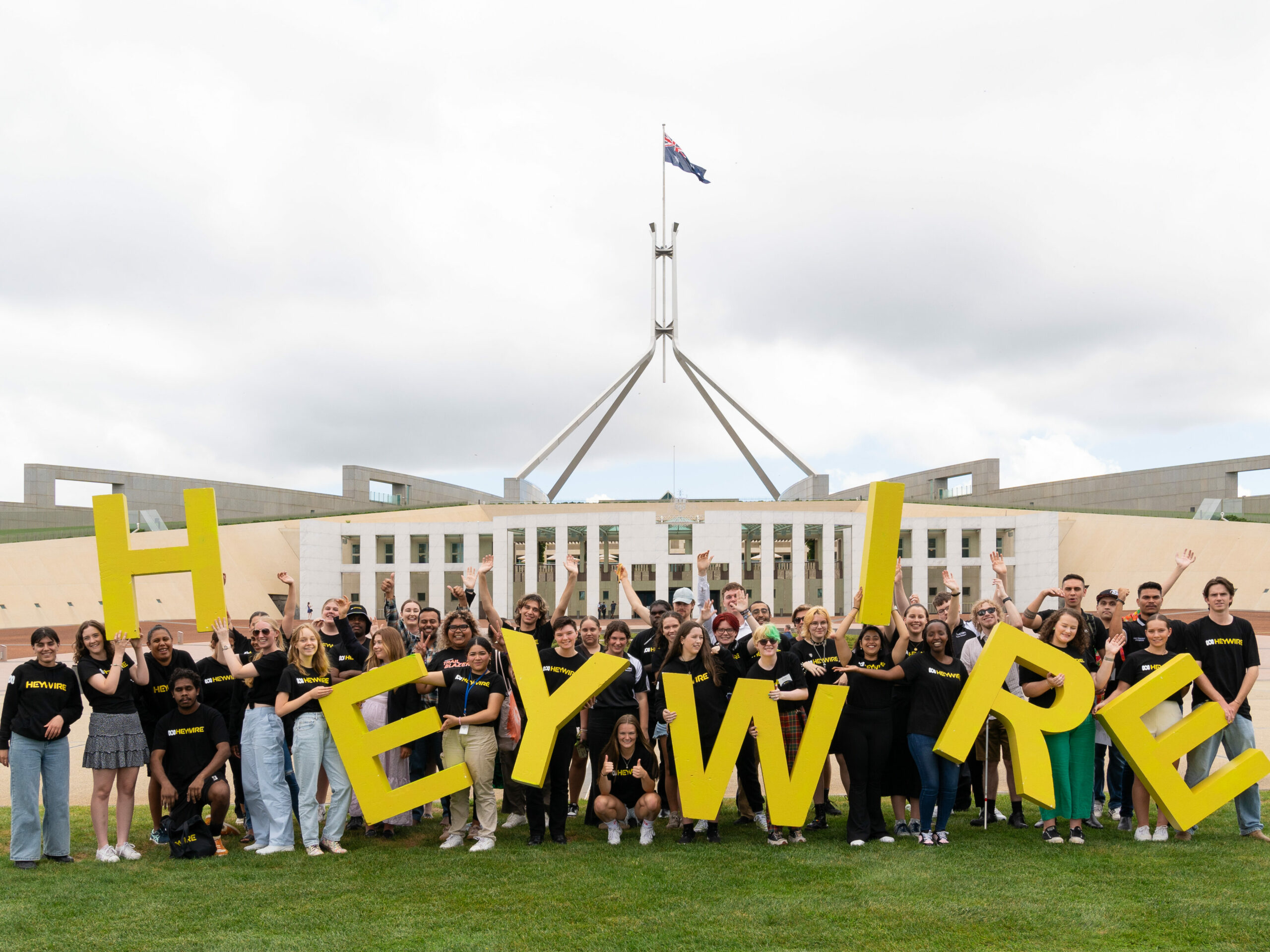
Funded through the FRRR ABC Heywire Youth Innovation Grants program, grants of up to $10,000 are available to kickstart initiatives that promote equitable access to local services and foster a sense of belonging and connection to peers and to the land.
The six ideas developed by the 35 young Summit participants during the week-long youth leadership and skills development event are:
- Bussin’: How might we create more accessible transport options for young people in regional and rural communities?
- MEE (Mentoring Educating Empowering): How might we close the gap in accessing quality education for young people in regional, rural and remote communities?
- A Place for You: How might we improve accessibility to mental health services in remote and regional areas of Australia?
- The Bigger Picture: How can we empower young people in regional towns to celebrate their differences and foster connection among themselves?
- Safe Sphere: How might we ensure that young people in regional and remote communities receive relevant and comprehensive sexual education?
- Youth 2 Grassroots: How might we promote a stronger connection between individuals and their land by fostering a culture of environmental protection and stewardship?
There is $100,000 in funding available nationally, thanks to the generous support of The Sally Foundation, David Mactaggart Foundation and private donors. An additional $17,500 is also available specifically to fund projects in Queensland, thanks to a partnership with The John Villiers Trust.
Amy from Mount Isa, Queensland, is a 2024 Heywire Winner and was part of the group that developed the Youth 2 Grassroots project. Amy said, “I love living in rural Queensland, and it was incredible being given this opportunity through Heywire to come up with an idea to improve life for other country kids. I’m so excited to see what comes from our idea.”
Deb Samuels, FRRR’s People Portfolio Lead, said the Foundation’s long-term partnership with ABC has led to significant outcomes for young people and communities.
“Having run the Heywire Youth Innovation Grants program for 12 years, we have been lucky enough to witness the impact that these young leaders, their ideas, and the funded projects have had on rural Australia.
“From mental health first aid training and career open days, to events that foster social and cultural connection and understanding, each project ensures young people have an active role in fostering a place that they are proud to call home.
“It gives me hope for the future of rural Australia when I see young people working to tackle issues, many of which echo the concerns we see in rural Australia more generally, head on. The projects that these grants fund help young leaders to address issues of equity and wellbeing and change the underlying narrative of what rural communities “don’t have”, by creating a future where we can celebrate all that rural Australia can offer its young people,” said Ms Samuels.
Justin Stevens, ABC Director News, said the FRRR ABC Heywire Youth Innovation Grants program empowered young people to turn their ideas into reality.
“The ideas generated at the ABC Heywire Summit are developed by young people in regional communities, for young people.
“The grants that contribute to this help provide remote, rural, and regional communities a tangible means for encouraging the next generation of leaders to have a voice and act on issues that matter to them and their peers,” Justin said.
To date, more than $1.5 million in community and philanthropic investment has helped to fund more than 190 projects in more than 142 communities.
Applications close 5pm AEST Wednesday 29 May, and recipients will be announced in August. More information about the six ideas is available on ABC’s Heywire website, and more information about the available grants can be found on the FRRR ABC Heywire Youth Innovation Grants program webpage.
By Deb Samuels, People Portfolio Lead
With the rates of volunteering on the decline, how will we replace these tireless volunteers with a new generation of community leaders? It’s encouraging to know the Australian Government is making an investment in the future of volunteering. The recent press release from Minister Andrew Leigh’s office ‘Getting more young people back into volunteering’ provides some targets and strategies for engaging with and encouraging more youth volunteering and developing an open source ‘playbook’ for the sector.
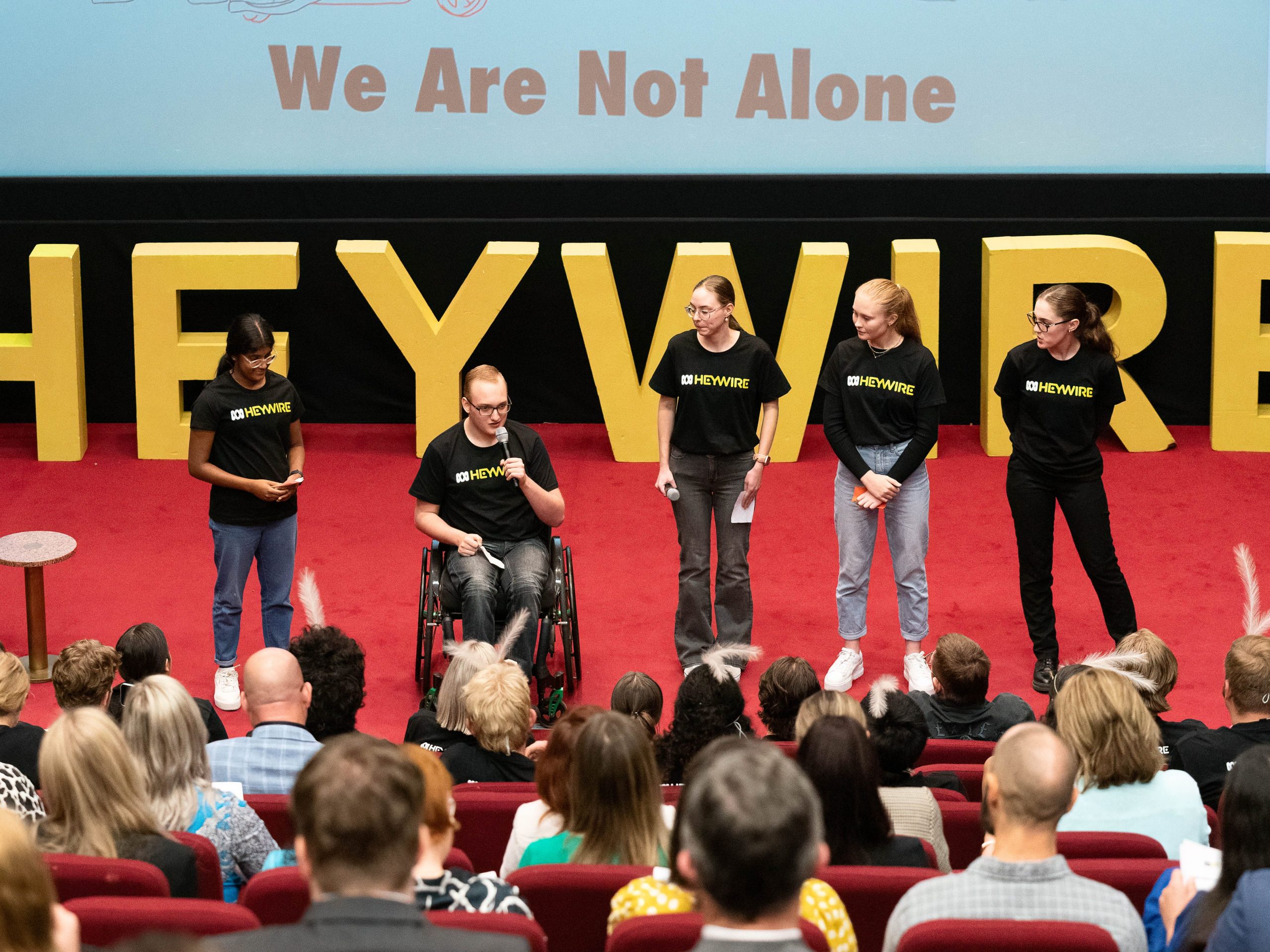
Photo credit: Bradley Cummings
For rural, regional and remote communities, harnessing the energy and social consciousness of young people represents an incredible opportunity – and unique challenges – to do things differently when it comes to local community leadership and volunteerism. The work we do at FRRR supports so many volunteer-run groups providing critical services across these communities that may not otherwise exist. As the Government funded work unfolds to inspire future volunteers, developing a targeted strategy for engaging young people living in rural, regional and remote contexts will be so important to ensure the viability of these essential volunteer-run resources.
My work at FRRR provides an up-close view of the hopes, dreams and frustrations of young people living in rural, regional and remote Australia, through our partnership with the ABC Heywire, Takeover and Trailblazer programs. Young people who care deeply about fairness, diversity and equity, who are keenly aware that they will be emerging into adulthood in a world suffering the impacts of climate change, and who have grown up with technology and access to instant information at their fingertips. Young people who have lived their formative years impacted by a series of traumatic events – bushfires, drought, floods and a global pandemic – missing much anticipated milestones and often feeling unsure about what opportunities might still be open to them in the future. Young people who want to make sure the voices of diverse and marginalised people are heard, and who value flexibility and investing in wellbeing. Young people who, when given the opportunity and voice, are a source of innovative and practical solutions to some of the biggest challenges Australia’s rural, regional and remote communities are facing.
What I’m also seeing in our place-based capacity building programs, like Investing in Rural Community Futures (IRCF), is that the volunteers who have been the backbone of small community organisations for decades are now looking to retire and pass the baton. They are exhausted because so much of the recovery work, from the series of disasters in recent years, has fallen on their shoulders. They know the answer lies in engaging young people as the next generation of leaders but are often not quite sure how. We also see that young people want to connect and help, but they struggle to see themselves in the same roles their parents and grandparents have held, doing things the way they have always been done.
Instead of inviting regional young people to take a seat at the existing community leadership table, what if we first co-design a new ‘table’ with them? To hear and really listen to the ways they are inspired to connect. I couldn’t agree more that taking on a volunteer role can be empowering and career building for young people, but first we need to make sure we get the ecosystem right.
Could some volunteer opportunities be done remotely or more flexibly? Could a broader model of shared leadership be adopted? Could some traditional volunteer roles become paid or partially paid roles, so that young people without the means to donate their time, can still be involved in their community in meaningful ways and become inspired for a lifetime of connection to the sector? And definitely not to be left out – how can we make sure there’s a healthy dose of fun in volunteering?
There is sometimes an assumption made that because they are not showing up in familiar ways, young people don’t want to show up for community. What I see and hear is the exact opposite. Young people in regional communities are looking at complex problems, with fresh eyes, and coming up with entrepreneurial solutions. Like the volunteer Youth Leadership Committee at Heywire grantee Human Nature, who shaped their alumni program with the flexibility for young people to participate in activities that interest them and suit their personal life goals. And like the Regional Education Support Network (RESN), a youth volunteer-led organisation that has connected 1,400 school students with over 400 online peer tutoring volunteers across regional NSW and Victoria.
As young people imagine their futures, wouldn’t it be great if they had a career with a social impact focus on their radars as an exciting and viable one? To see staying in their rural, regional or remote community as a first choice to do work that aligns with their values, and not one that comes with a long list of compromises.
It brings me so much joy in my work at FRRR to know that we are committed to deeper engagement with regional young people. We are adding meaningful opportunities for their powerful voices to be present and truly heard in decision making that values their knowledge and reflects their values. This year, with generous donor support, we are embedding paid youth advisor roles to work alongside NFP’s implementing youth-designed projects funded through the Takeover Mildura program. We have also shifted a volunteer ABC Heywire Youth Internship role to a paid position, along with offering an honorarium for our Youth Advisory Panel who assess grant applications. This will ensure that all eligible young people have the opportunity to take a leadership role in deciding what projects best meet the needs of young people.
We never want to lose the opportunities for unpaid volunteering. However, when we are asking young people to share their expertise and lived experience, we need to make sure those unique skills are valued. Re-imagining how small volunteer-centred NFPs in remote, rural and regional communities might survive and continue to operate as vital community resources and services in the future is no small challenge. The answer lies with the young people who will both lead and need these programs and services. They are the solution, so let’s take every opportunity to listen and learn.
Grants of up to $10,000 available nationwide
Grants of up to $10,000 are now available to fund community-led projects, developed by young people, to respond to the six issues identified at this year’s ABC Heywire Youth Summit, including mental health, accessibility, youth voices, addressing costs of living and creating safe spaces – all issues that concern youth.
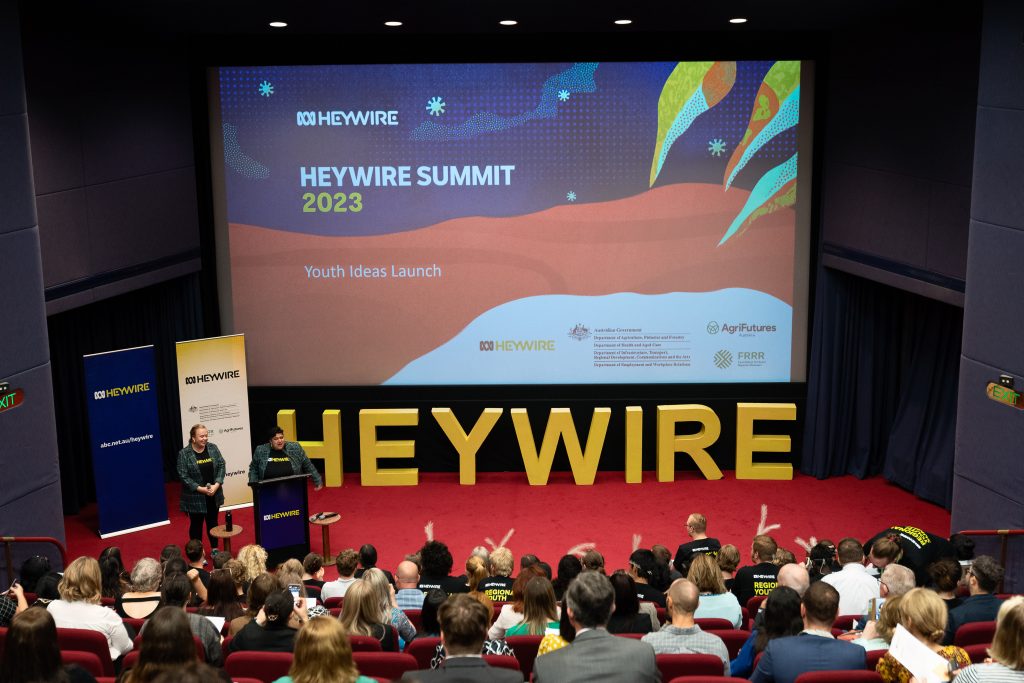
The FRRR ABC Heywire Youth Innovation Grants program has supported remote, rural, and regional youth since 2013, providing them with the opportunity to not only identify the issues that matter most to them but also take action to combat them.
This year, there is $115,000 in grants available nationally and an additional $35,000 specifically to fund projects in Queensland, thanks to a new partnership with The John Villiers Trust.
The six ideas respond to common issues of concern identified by the 39 regional youth who attended the ABC Heywire Youth Summit, a youth leadership and skills development event held last month in Canberra.
FRRR and its partners will fund grants that enable activation of these ideas across rural Australia, enabling community organisations and not-for-profits that work with young people to either implement these ideas or to develop their own projects to address the issues raised, which include:
- Boredom Relief: How might we create safe spaces for youth?
- Easy Access: How might we empower regional youth to take charge of their mental health and support their mates?
- Homegrown Hub: How might we create cost of food relief in communities across Australia?
- Idea 4 Change: How might we provide resources to ensure young people are supported and engaged in their education, with their diverse learning needs catered for?
- Hear Our Voices: How might we ensure that all youth voices are heard and represented on issues that matter to them?
- We are not Alone: How might we create a better future for all young people living with a disability to feel understood and supported in regional Australia?
More details about each of these ideas can be found on the ABC Heywire website.
Kadee from Barcaldine, Queensland, Iningai Country, is a 2023 Heywire Winner and was part of the group that developed the Idea 4 Change project. Kadee said it was inspiring knowing their idea would become a reality in rural Australia.
“I’ve already had educators of my school asking heaps of questions and having me go into depth about our idea. I’m feeling intrigued to see how everyone’s ideas evolve over time and how they impact our country.”
Deb Samuels, FRRR’s People Portfolio Lead, said that to truly create impact for young people, they need to be at the table in making decisions and the Youth Innovation Grants program facilitates this.
“From idea development, through to assessing grant applications that are recommended to the FRRR Board for funding, the Youth Innovation Grants program is led by rural youth, at all stages of the program. This process ensures that funding is allocated to create impact where it matters most for young people in remote, rural and regional Australia.
“Our long-term partnership with ABC has been instrumental to the success of this program. The ABC Heywire Summit is such a powerful platform for young Australians to share their voices and ideas to policy makers, and across the nation. To be able to invest in these ideas with funding that allows communities to act on these ideas is such a phenomenal opportunity.
“We encourage rural community groups to connect with local young people, consider the six issues and work together to develop a project and application that addresses one of the issues, in a local context. Our Youth Assessment Panel and I look forward to exploring all the innovative ideas developed,” said Ms Samuels.
This is the 11th year of the partnership between FRRR and the ABC to run the Heywire Youth Innovation Grants.
“We’re proud to once again partner with FRRR to invest in youth ideas across remote, rural and regional Australia,” said Warwick Tiernan, ABC Director, Regional and Local.
“We know that young people are keenly aware of the issues that affect them and given the chance, they have the skills to develop solutions to them. Being able to back these ideas with grants to make them come to reality shows young people we are doing more than just listening, we are acting on them.
“We’re excited to see what pioneering projects come to life this year and share these stories through the ABC network.”
To date, more than $1.4 million in community and philanthropic investment has helped to fund more than 174 projects in more than 130 communities. This round of FRRR ABC Heywire Youth Innovation Grants program is possible thanks to the generous support of FRRR’s donor partners, including The Sally Foundation, AMP Foundation, The John Villiers Trust, David Mactaggart Foundation and private donors.
Applications close Wednesday 7 June, and recipients will be announced in September. More information is available on the Youth Innovation Grants page.
Image is of ABC Heywire presentation event in the theatre at the Australian Parliament House, Canberra, by Bradley Cummings.
Nineteen grassroots initiatives across remote, rural and regional Australia will share in $172,069 in grants through the FRRR ABC Heywire Youth Innovation Grants program.
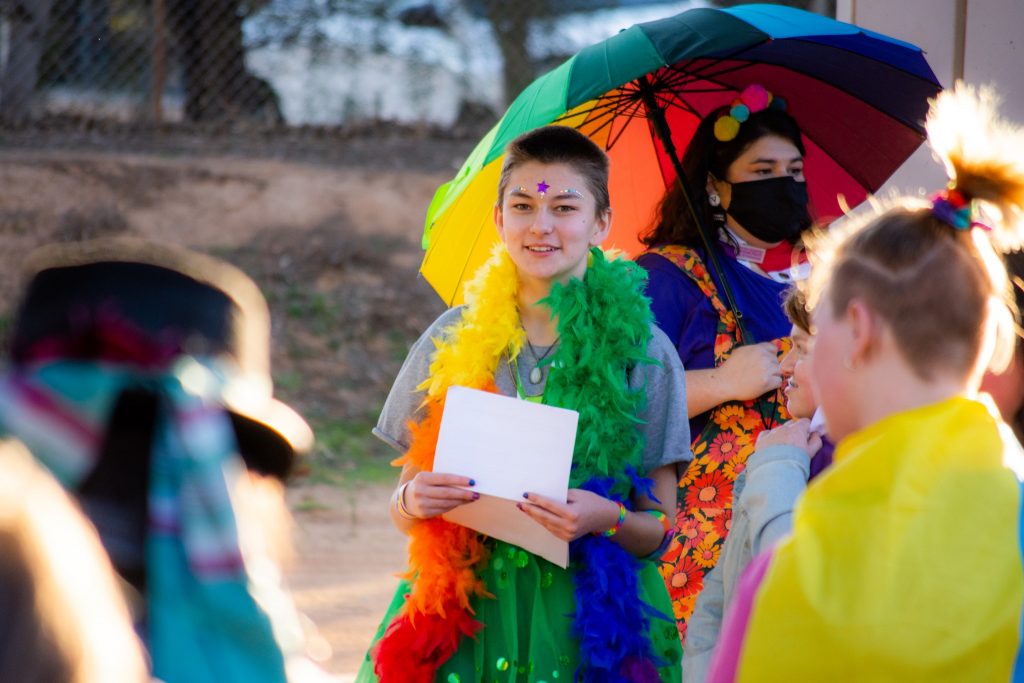
This year, the program took ideas generated by young Australians at the ABC Takeover Shepparton Summit and offered rural community organisations the opportunity to apply for a grant that would bring one of the six ideas to life. This year’s ideas for change centred around the themes of LGBTQIA+ allyship; hands on learning for young people; promoting healthier communities; supporting people in need; cultural awareness; and homelessness.
These 19 grants will mean that community organisations will have the support and resources they need to help address some of the issues that matter most to young people.
Deb Samuels, FRRR’s People Portfolio Lead, said that this program is so important because it gives young people a say and prepares them for future leadership roles within their communities.
“This program not only gives young Australians a platform to champion the causes that matter to them but, more importantly, it puts their thoughts and ideas into action. Young people are the future and the initiatives being funded are a great example of how they can have a direct and positive impact on regional Australia.
“The young people who participate in this program – either in developing the ideas or helping them come to life in their community – often go on to do great things in their communities and beyond. For the last couple of years, due to COVID we’ve had to adapt the way the ideas are generated, yet young people have continued to step up and show their dedication to working towards a better future for regional Australia,” Ms Samuels said.
Deakin, one of the young people who attended this year’s 2022 Takeover Shepparton Summit, run by the ABC in partnership with VicHealth, said it is so exciting to see that communities are going to adapt and adopt the ideas they were part of developing.
“Participating in Takeover this year was an amazing experience. Having the opportunity to get together with likeminded young people who are passionate about improving the future of regional Australia was really empowering.
“The conversations we had were really productive and, now, seeing the ideas we came up with turn into real initiatives and projects is amazing. I’m proud to think that the ideas we came up will reach so many communities,” said Deakin.
The FRRR Program Advisory Committee, which recommends the applications to be supported to the FRRR Board, is also made up of ABC Heywire alumni. This ensures young people to have an input in each step of the program, giving them a say in which initiatives best align with the issues affecting young people. The Committee role means they also gain valuable insight into the world of philanthropy and see just what’s involved in assessing and validating the applications, under the guidance of FRRR Directors and staff.
The Board endorsed 19 projects, some of which are highlighted below:
- The Scouts of the 1st Burrill-Ulladulla Sea Scout Group in Ulladulla NSW, received $2,782 to develop the Humanity Helping Homelessness idea by reducing food insecurity with the installation and promotion of a community food pantry and vegetable gardens.
- Melaleuca Refugee Centre Torture & Trauma Survivor’s Service of the Northern Territory Inc in Darwin, NT, received $10,000 to develop the Fusion Festival idea and encourage cultural inclusivity, by running a multicultural festival featuring food, workshops and live performances that provides an opportunity for migrants and former refugees to share their culture with the community and explore business opportunities to utilise their culture and skill set.
- RoboCoast Sunshine Coast Robotics Association in Bamaga, QLD, received $10,000 to develop the Hands On Learning idea by providing youth throughout remote Australia with a hands-on opportunity to learn about Robotics.
- Roxby Downs Community Board in Roxby Downs, SA, received $6,393 to develop the Take Care idea by empowering youth with the skills to recognise and respond to a friend experiencing a mental health problem or a crisis situation through Mental Health First Aid training at Roxby Downs Area School.
- Launceston Hazara Community in Launceston, TAS, received $10,000 to develop the Supporting People In Need idea by supporting upskilling and social opportunities for youth in the Hazara community through a program of culturally safe and supportive social opportunities.
- Greater Shepparton Lighthouse Ltd in Shepparton, VIC, received $10,000 to develop the Hands On Learning idea by expanding the use of the current ‘Pit Stop’ program with a series of workshops for youth focusing on hands-on projects such as woodwork, car maintenance and push bike refurbishment.
- City of Albany in Albany, WA, received $4,664 to develop The Allies Project by highlighting the stories of what it means to be a LGBTQIA+ ally in the Albany community through the production of The Ally Podcast.
A full list of the projects funded can be found on FRRR’s website.
These grants are possible thanks to the generous support of the Sally Foundation, Findex Community Fund, David Mactaggart Foundation and The Collie Foundation, Greater Shepparton Foundation as well as several private donors.
| Organisation | Project | Location | Grant | |||
|---|---|---|---|---|---|---|
| NEW SOUTH WALES | ||||||
| Eden Community Access Centre Inc | Hands on Learning Engage youth in disaster preparedness and resilience through a youth designed and developed game. | Eden | $10,000 | |||
| Farm it Forward Inc | Hands on Learning Support Farm it Forward with the installation of a greenhouse to enable future youth workshops and employment pathways. | Hazelbrook | $10,000 | |||
| Heal.ed Tribe Ltd | Supporting People in Need Empower youth with the skills and knowledge to overcome mental health challenges with a peer-led reconnect program. | Mullumbimby | $9,030 | |||
| The Scouts of the 1st Burrill-Ulladulla Sea Scout Group | Triple H Reduce food insecurity with the installation and promotion of a community food pantry and vegetable gardens. | Ulladulla | $2,782 | |||
| NORTHERN TERRITORY | ||||||
| Melaleuca Refugee Centre Torture & Trauma Survivor's Service of the Northern Territory Inc | Fusion Festival Develop a multicultural festival of food, workshops, and live performances that provides an opportunity for migrants and former refugees to share their culture with the community and explore business opportunities to utilise their culture and skill set. | Darwin | $10,000 | |||
| Corrugated Iron Youth Arts Inc | Hands On Learning Support performing youth with the teaching skills to become teachers to the next generation. | Darwin | $10,000 | |||
| Uprising of the People Ltd | Supporting People In Need Encourage youth to connect with their community and elders with regular youth events. | Darwin | $10,000 | |||
| QUEENSLAND | ||||||
| RoboCoast Sunshine Coast Robotics Association | Hands On Learning Provide youth throughout remote Australia with a hands on opportunity to learn about Robotics. | Bamaga | $10,000 | |||
| SOUTH AUSTRALIA | ||||||
| Kimba Mental Health and Wellbeing Group Inc | Fusion Festival Foster cultural awareness in the local community through a youth led festival of storytelling, dance and activities showcasing the cultural makeup of the Kimba community. | Kimba | $10,000 | |||
| District Council of Karoonda East Murray | Hands On Learning Empower youth with the skills, equipment and mentoring to establish and run a coffee business. | Karoonda | $10,000 | |||
| Riverland Youth Theatre | The Allies Project Help youth identify LGBTQIA+ allies and identify safe spaces within their community by developing The Ally Awards. | Renmark | $10,000 | |||
| Roxby Downs Community Board Inc | Take Care Empower youth with the skills to recognise and respond to a friend experiencing a mental health problem or a crisis situation through Mental Health First Aid training at Roxby Downs Area School. | Roxby Downs | $6,393 | |||
| Nature Foundation Ltd | Hands on Learning Provide the future generation with the skills and knowledge of caring for country and future employment pathways. | Witchelina | $10,000 | |||
| TASMANIA | ||||||
| Launceston Hazara Community Inc | Supporting People in Need Encourage the development of skills and social opportunities for youth in the Hazara community with a program of culturally safe and supportive social opportunities. | Launceston | $10,000 | |||
| VICTORIA | ||||||
| REACH Foundation | Supporting People in Need Improve youth mental health with the delivery of youth-led workshops that equip young people with the tools to set goals, deal with conflict and build emotional resilience. | Shepparton | $9,920 | |||
| Greater Shepparton Lighthouse Ltd | Hands on Learning Expand the use of the current ‘Pit Stop’ program with a series of workshops for youth focusing on hands on projects such as woodwork, car maintenance and push bike refurbishment. | Shepparton | $10,000 | |||
| The Foyer Shepparton | Triple H Support youth experiencing homelessness in Shepparton through the development of free and accessible video resources relating to affordable housing. | Shepparton | $10,000 | |||
| The Bridge Youth Service Inc | Triple H Build on The Bridge’s current work in youth homelessness, with a program of initiatives to support youth experiencing housing insecurity including information and education sessions and an event to raise awareness of homelessness issues. | Shepparton | $10,000 | |||
| WESTERN AUSTRALIA | ||||||
| City of Albany | The Allies Project Highlight the stories of what it means to be a LGBTQIA+ ally in the Albany community through the production of The Ally Podcast. | Albany | $4,664 | |||
In partnership with the Sally Foundation and ABC, FRRR is awarding grants to support six young leaders who are working on projects that respond to challenges, issues and opportunities in remote, rural and regional Australia. The young people have partnered with local community organisations to receive the grants.
Through a Giving Sub Fund, the Sally Foundation partners with FRRR to ensure that funding reaches groups that they could not normally fund, usually due to their tax or organisational status.
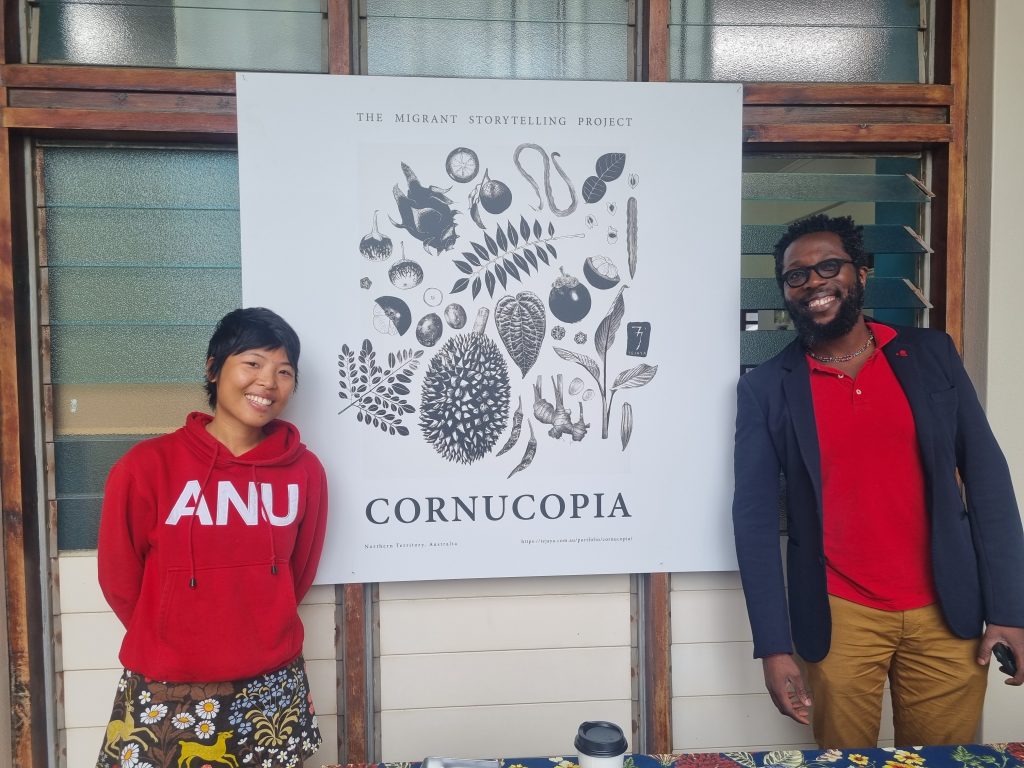
This is the third round of this program, which builds on ABC’s Trailblazer program, which in turn builds on the Heywire program. This round was designed to help Trailblazers from 2021 or 2022 develop their leadership skills and their capacity to make a difference in their communities.
Co-founder of The Sally Foundation, Geraldine Roche, said “In establishing the Trailblazer Development Fund, Mike and I have sought to provide assistance at a key point in these community leaders journey to further their projects.”
FRRR’s Philanthropic Services Manager, Jo Kemp, said that the partnership between Sally Foundation, ABC and FRRR to offer this program is an exciting way to build the skills of young people.
“These six grants will help these Trailblazers grow momentum for their ideas, get runs on the board and then be in a position to leverage their experience for future funding opportunities.
“It’s a fantastic opportunity for the young people who have developed their projects through the ABC Heywire program to shape them into a ‘funding-ready’ application. A huge asset to the program is having Trailblazer alumni participate on the grant Advisory Panel, providing unique insights, curiosity and constructive feedback to the applicants.
“This year’s successful applicants tackled a range of issues, including access to STEM learning for children in remote communities, increasing wildlife rescue volunteers on the Limestone coast and raising awareness of children living with chronic illnesses in rural and regional NSW. The diversity of projects and people supported is a wonderful example of the range of issues that are driving young leaders in rural and regional communities across Australia,” Ms Kemp said.
Read the full list of projects supported below.
| Organisation | Project | Location | Grant | |||
|---|---|---|---|---|---|---|
| NEW SOUTH WALES | ||||||
| Hunter Business Centre | Jack’s Digital Outreach: The Giggle and Learn Program Grow community awareness and involvement of children living with chronic illness in regional areas through the creation of fun and engaging media content and educational resources. | Newcastle | $6,330 | |||
| NORTHERN TERRITORY | ||||||
| Melaleuca Refugee Centre Torture & Trauma Survivor's Service of the Northern Territory Inc | Cornucopia Build the capacity of Trailblazer participant to deliver an art and storytelling project profiling rural and regional migrants and refugees in the Northern Territory through the purchase of software, office supplies, and furniture. | Darwin | $5,330 | |||
| QUEENSLAND | ||||||
| RoboCoast Sunshine Coast Robotics Association | Red Dirt Robotics Increase access to STEM learning, including robotics and coding, for regional and remote children by building the operational capacity of Red Dirt Robotics. | Sunshine Coast | $4,335 | |||
| Rotary Club of Sunnybank Hills Inc | Skating Towards Inclusion Boost community awareness and accessibility for people with disabilities to participate in a wider range of activities through Wheel Chair Moto Cross skate park demonstrations events and workshops in regional towns and cities. | Sunnybank Hills | $4,340 | |||
| Royal Flying Doctor Service of Australia (Queensland Section) Limited | Aviatrix Australia Increase awareness of aviation career pathways for students in rural communities, particularly girls, through an educational podcast series and school visitation program. | Townsville | $4,335 | |||
| SOUTH AUSTRALIA | ||||||
| South East Animal Welfare League of South Australia Inc | Rescuing the Rescuers Increase availability of wildlife rescue services across the Limestone Coast in SA through delivery of training, supplies and equipment, and essential health vaccines for volunteers. | Mount Gambier | $5,330 | |||
The First Nations’ Pertame language is severely endangered, and at risk of becoming yet another lost language within the next generation. Also known as Southern Arrernte, it is a Central Australian language that belongs to the Country around the Finke and Hugh Rivers, about 100 km south of Alice Springs. Right now, there are fewer than 10 fluent speakers of this language.
The Pertame School is a community-led language program working with Pertame Elders to pass their language and cultural knowledge down to the next generation. They provide a learning platform to grow the next generation of Pertame speakers through the Centre for Australian Languages and Linguistics (CALL).
In doing so, their objective is to create a thriving, connected Pertame community, with increased mental, spiritual and physical wellbeing through language and cultural renewal. With almost all fluent speakers of Pertame within the grandparent and great-grandparent generation, there was an urgent need to invest heavily in the development of community leaders and the next generation of Pertame language teachers.
Since starting in 2017, the Pertame School has grown to include school holiday programs for children, in-school classes, adults’ evening classes and a master-apprentice program. The Pertame School runs as a project through CALL within the Batchelor Institute’s research division. The Institute manages the project’s finances and provides classrooms, office space and vehicles, and CALL provides support and advice to the Pertame project, but all CALL language projects are required to self-fund through grants and philanthropic donations.
With a grant from the 2020 Larger Leverage round of FRRR’s Strengthening Rural Communities program, funded by The Maple-Brown Family Foundation, the Northern Territory’s Batchelor Institute of Indigenous Tertiary Education has continued to deliver their Master-Apprentice Program (MAP). MAP utilises innovative learning techniques originating from Indigenous communities in southern California that are centred around one-on-one oral immersion sessions with Elders – the Masters – which sees a return to the old ways of learning.
One of the apprentices is Shania Armstrong – a recent grade 12 graduate and young Traditional Owner who is taking part in MAP and teaching what she has learned to the next generation of Pertame speakers on Arrente Country.
Shania is part of her family’s dedicated multi-generational involvement in the program, with her great-grandmother, Nana Christobel Swan, one of the last Pertame speakers and the one of the program’s key ‘Masters’. Going from her great-grandmother’s reality of not being allowed to speak her language at school, to being a steward for the regeneration of Pertame has been a great source of pride for Shania and her community. Knowing that this regeneration has already and will continue to grow not just a strong source of social cohesion but a sense of self and culture, is just one of Shania’s motivations to do all she can to heal Country in this way.
In an interview with the ABC’s Healing Country program presenter Lillie Madden, Shania described her involvement in the program.
“When I got the chance to learn my language I took it. I want to keep doing what I’m doing and teach my language so it never dies. The kids love learning their language. Every time they come to a Pertame class they always have a big smile on their face.”
The FRRR grant was used to pay for qualifications and training for apprentices; language learning resources; a contribution towards transport and food costs; as well as towards apprentice employment payments.
Batchelor Institute’s CALL and the Pertame School is proud of this solutions-focused initiative and its wide-reaching impact on the broader community. Learn more here.
$208,000 in grants awarded to 23 projects
Twenty-three projects in remote, rural and regional Australia have been awarded grants through the FRRR ABC Heywire Youth Innovation Grants program to bring to life ideas developed at the Heywire Youth Ideas lab. These projects will tackle a range of issues such as discrimination, youth-led peer support, multigenerational connection, mental health and career opportunities for young people.
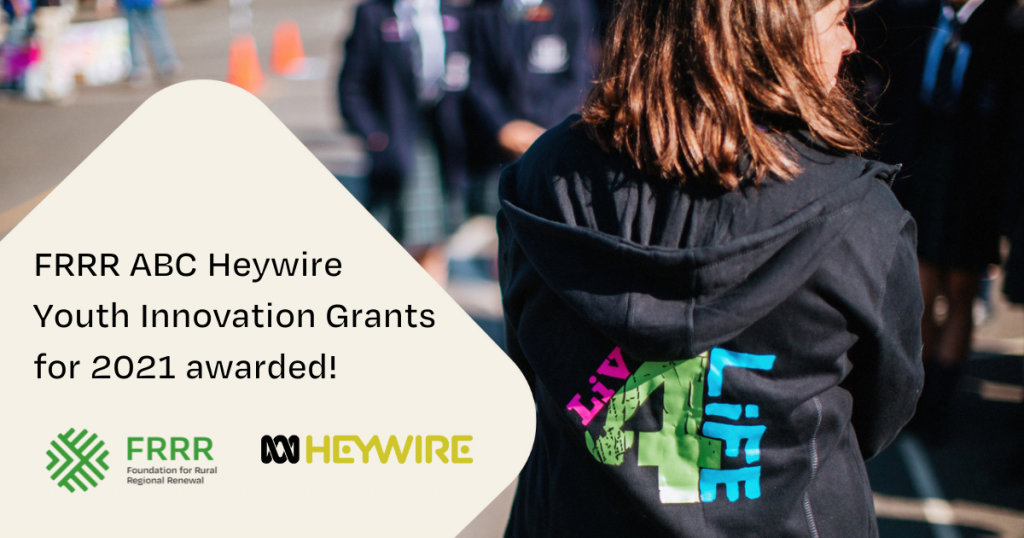
These grants will mean that community organisations and local not-for-profits can implement community-led initiatives that will have a lasting impact.
Natalie Egleton, FRRR’s CEO, said she is impressed by how all those connected with the program managed to pivot to respond to COVID-19 conditions.
“Due to COVID-19 restrictions, the ABC was unable to hold the usual Heywire Regional Youth Summit in Canberra. Instead, they adapted and ran the first Heywire Youth Ideas Lab in Broken Hill. The determination of the young people of Broken Hill, and their willingness to make a difference inspired these projects, which will create meaningful change when it comes to mental health and wellbeing, skills development and equality in our remote, rural and regional towns.
“These grants highlight the importance of both providing support on the ground and ensuring that young people are driving the conversation about their priorities. These community-led initiatives, which all involve young people, will facilitate events, training and mentorship that will bring people together and ensure that our remote, rural and regional communities continue to thrive,” Ms Egleton said.
Youth Ideas Lab participant Emerson said that she feels proud to have been a part of a program that will make a difference for so many Australians.
“When we were telling our stories and developing our ideas at the Youth Ideas Lab, it was such an inspiring experience, but it was difficult to imagine our ideas actually being put into practice. Now, hearing and reading about all the wonderful projects that are going to actually happen because of the ideas that we brought to the table is amazing!”
The involvement of young people also extended to the assessment of the applications. For the last three years, the FRRR Program Advisory Committee, which reviews the assessments made by staff and recommends grants to FRRR’s Board, has been made up of former Heywire participants. The group learns about committee processes and governance, before participating in the assessment committee. FRRR directors, staff and some donors are on-hand with ABC staff to provide support. This is a deliberate approach to continue to invest in young people, so they can play an ongoing role in strengthening their communities.
Some of the 23 projects being funded are listed below:
- CareSouth Deniliquin in Deniliquin, NSW, received $5,080 to develop the Support Squad idea bycreating a youth peer support network that will run an art therapy mentoring program.
- Nganmarriyanga School Council Incorporated in Nganmarriyanga, NT, received $10,000 to develop the Open Field Fest idea by developing students’ creative skills with song writing workshops that showcase community, culture and language.
- Heal.ed Tribe in Coombabah, QLD, received $5,400 to develop the Contribute to the Change ideaby supporting young women with a lived experience of an eating disorder to share their story and reduce the stigma surrounding it.
- Umeewarra Aboriginal Media Association in Port Augusta, SA, received $10,000 to develop the Open Field Fest idea by growing the number of young first nations artists participating in music festivals in Port Augusta through a skills development program.
- Beacon Foundation in Hobart, TAS, received $9,640 to develop the Discover your Future idea by encouraging secondary school students to adopt an entrepreneur mindset with a program to imagine, design and develop new businesses and products.
- Youth Live 4 Life in Maryborough, VIC, received $10,000 to develop the Contribute to the Change ideaby developing a network of youth who are trained in mental health first aid and knowledgeable about the support services available to them.
- Derby District High School in Derby, WA, received $10,000 to develop the Discover your Future idea by developing youth skills in horsemanship to broaden their career aspirations and provide a pathway into the pastoral industry.
The grants are made possible thanks to the generous support of the Sally Foundation, Erdi Foundation, Findex Community Fund, David Mactaggart Foundation, MaiTri Foundation as well as several private donors.
The full list of grant recipients and their projects are below.
| Organisation | Project | Location | Grant | |||
|---|---|---|---|---|---|---|
| The StoryLink Project | ||||||
| Council of the City of Broken Hill | Create an inclusive community where diversity is celebrated through videos of young people highlighting the rich cultural makeup of the region. | Broken Hill, NSW | $10,000 | |||
| GiveOUT Inc | Support the young LGBTIQ+ community with a capacity building project, empowering them to tell their stories and create vibrant sustainable organisations. | Online, VIC | $10,000 | |||
| Satellite Foundation | Improve community understanding of the difficulties faced by youth who have a family member with a mental illness, with a video series highlighting the everyday prejudice faced by these youth. | Gippsland, VIC | $10,000 | |||
| Support Squad | ||||||
| CareSouth | Create a youth peer support network by running an art therapy mentoring program. | Deniliquin, NSW | $5,080 | |||
| Human Nature Adventure Therapy | Empower youth to share their mental health journey with their peers through a mental health training and storytelling workshop. | Ballina, NSW | $10,000 | |||
| Young Men’s Christian Association of Sydney | Establish an LGBTIQ+ support group for the youth of Cooma and provide training to create leaders within the group. | Cooma, NSW | $9,878 | |||
| Rascal Robot Art Space | Support youth to develop the skills and connections to establish an arts and culture festival that is fun, safe and inclusive for the community. | Beaconsfield, TAS | $9,800 | |||
| Wimmera Development Association Incorporated | Develop leadership skills for young multicultural youth in Wimmera to help them develop their own support networks. | Horsham, VIC | $10,000 | |||
| Open Field Fest | ||||||
| Greater Hume Shire Council | Increase social opportunities for youth through the development of a fun and inclusive youth event. | Culcairn, NSW | $10,000 | |||
| Nganmarriyanga School Council Incorporated | Develop students’ creative skills with song writing workshops that showcase community, culture and language. | Nganmarriyanga, NT | $10,000 | |||
| Umeewarra Aboriginal Media Association | Grow the number of young first nations artists participating in music festivals in Port Augusta through a skills development program. | Port Augusta, SA | $10,000 | |||
| Food is Free Inc | Support Ballarat youth to create a community festival that celebrates sustainability through workshops, emerging artists and recycled art. | Ballarat, VIC | $9,904 | |||
| Contribute to the Change | ||||||
| Snowy Monaro Regional Council | Improve mental health literacy and awareness, by training a series of mentors to provide one-on-one support and guidance to youth. | Cooma, NSW | $9,200 | |||
| RichmondPRA Limited | Build the mental health literacy of Broken Hill youth through wellbeing workshops. | Broken Hill, NSW | $3,500 | |||
| Heal.ed Tribe | Support young women with a lived experience of an eating disorder to share their story and reduce the stigma surrounding it. | Coombabah, QLD | $5,400 | |||
| Riverland Youth Theatre | Empower youth to explore their identity through performance art and costume design to image their best, bravest future self. | Renmark, SA | $10,000 | |||
| Youth Live 4 Life | Develop a network of youth who are trained in mental health first aid and knowledgeable about the support services available to them. | Maryborough, VIC | $10,000 | |||
| Hindmarsh Shire Council | Create meaningful conversations about mental health with a youth presented podcast series with mental health professionals. | Nhill, VIC | $10,000 | |||
| Discover your Future | ||||||
| Far West UC | Prepare Broken Hill youth for their future careers by holding a networking event with local experts and education providers. | Broken Hill, NSW | $7,269 | |||
| Sydney School of Entrepreneurship | Inspire the youth of Dubbo to explore new pathways beyond school with a challenge-focused innovation and entrepreneurship program. | Dubbo, NSW | $9,150 | |||
| Beacon Foundation | Encourage secondary school students to adopt an entrepreneur mindset with a program to imagine, design and develop new businesses and products. | Hobart, TAS | $9,640 | |||
| Food & Fibre Great South Coast | Inspire Geelong youth to explore a career in the food and fibre industry by connecting them with young leaders in the field. | Geelong, VIC | $10,000 | |||
| Derby District High School | Develop youth skills in horsemanship to broaden their career aspirations and provide a pathway into the pastoral industry. | Derby, WA | $10,000 | |||
Students Against Racism (SAR) is a youth organisation based in Hobart, Tasmania. They believe that ‘in diversity lies strength’ and they seek to build a stronger more welcoming and supportive community by sharing stories and addressing misconceptions.
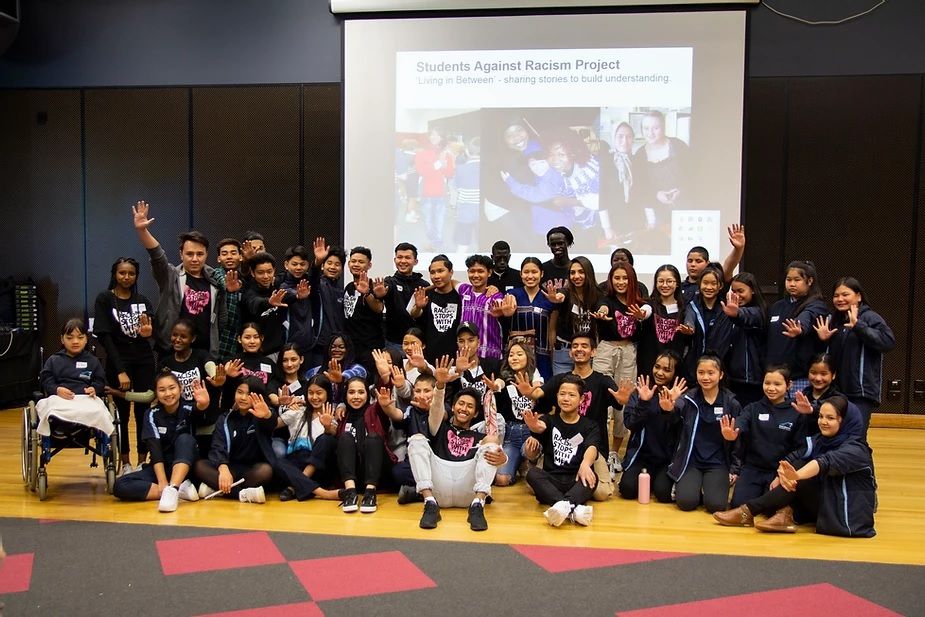
It was formed in 2008 by multicultural youth with lived experience in just how damaging direct acts of racism from their community can be. Recognising that ignorance was a big part of these acts, they sought to change the way their community saw people from different cultures through the path of education.
For over a decade SAR have developed and delivered integral and multi award-winning learning tools that have since been incorporated into various organisations – including schools and community groups, the Tasmanian police recruit training program and a number of TasTAFE courses. A part of these programs involves teaching participants about the issues and challenges facing multicultural youth who are new to the Tasmanian community.
As the proud recipients of a $7400 grant from FRRR’s HEYWIRE program, supported by the Sally Foundation, SAR attended the 2019 HEYWIRE Conference and made some long-lasting and vital connections that have since flourished into a greatly beneficial foundation for interstate learning.
The funding allowed 18 SAR representatives from various cultural backgrounds to travel from Hobart to Bendigo and present their flagship educational anti-racism program ‘Living in Between’ to 110 local youth at Eaglehawk Secondary College in the Bendigo region. The workshop involved presentations, small group work, activities and training, and allowed a safe environment to ask questions in order to foster understanding and compassion for those with multicultural backgrounds.
“The program gives the students the platform to explain why they left their homelands, the journey that brought them to Australia, and their lives now.”
Seeing the deep-seated impact that the SAR representatives could make via their anti-racism program, the students and youth from the Bendigo region indicated that were inspired to hold their own similar workshop and have since done so with great effect.
Through delivering this invaluable program, the youth of SAR have significantly gained self-confidence, increased teamwork and support, and have fostered deeper connections not just within their group but with the greater community. Helen Hortle who has been integral in the coordination of the educational adventure is pleased as punch with the outcome.
“It has been a fantastic experience for young members of SAR – one that wouldn’t have been possible without FRRR funding and support. Thank you!”

